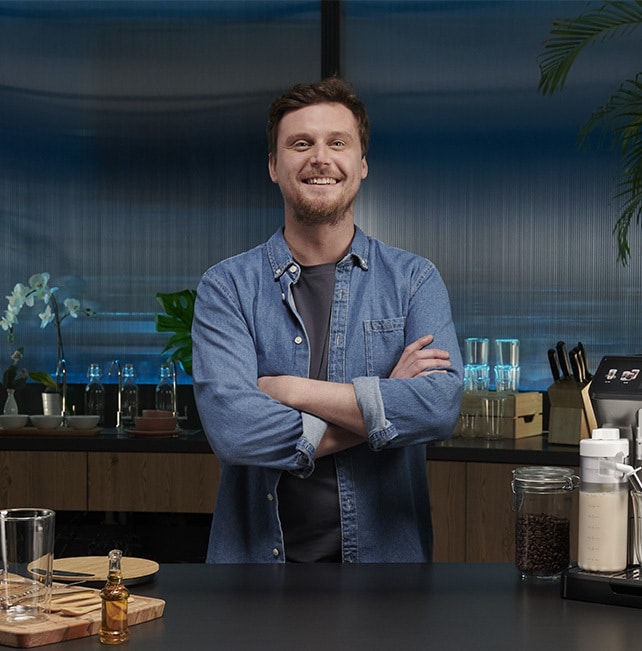
Coffee machines
In history, alchemists used a blend of science and magic to search for a way to transform base materials into something more valuable. In the spirit of alchemy, we look at the importance of water in creating the perfect cup of coffee.
Water typically makes up 98% of a cup of coffee so, naturally, it follows that the quality of water you use has a major influence on the taste of your coffee.
Fortunately, in the UK, tap water is chemically treated to kill dangerous bacteria – but it still contains many substances that affect its taste. In fact, the chemicals that are used to treat our water can sometimes leave a strong odour and taste behind.
Then there are minerals, such as calcium and magnesium, which are deposited in water when it runs through limestone and chalk. The higher the mineral content of the water, the ‘harder’ it is; while ‘soft’ water is relatively low in minerals. This is important to coffee brewing as hot water acts like a solvent, extracting the flavours from the ground coffee beans; the amount of minerals in the water can affect the way this process takes place, which in turn affects the taste of the coffee.
According to author James Hoffman in his book, The World Atlas of Coffee, “the water hardness strongly influences the way the hot water and the ground coffee interact. Hard water seems to change the rate at which the solubles in the coffee go into solution, essentially changing the way the coffee brews at a chemical level. To summarise; it seems a small amount of hardness is desirable, but anything from moderate to hard water does a poor job of brewing coffee, producing a cup lacking in nuance, sweetness and complexity.”
Fortunately, here at De’Longhi we realise that our customers’ water hardness varies significantly, so we include a water hardness tester with every coffee machine. This ensures you can easily set your machine to the water-hardness in your area, and ensure you de-scale your machine when you need to. Reducing the amount of limescale minimises the maintenance your coffee machine requires.
How to filter water for your coffee
Many De’Longhi Bean to Cup machines also come with a water filter included in the box which, when fitted to the water reservoir, ensures the water used by the machine is free of unwanted minerals and deposits. In exceptionally hard water areas, filtering may not be enough to remove all the minerals – in this case, bottled water may be the best choice for making your coffee. Whichever way you choose to filter your water, make sure you clean your coffee machine according to the manufacturer’s instructions. This will remove mineral build up, helping your coffee to taste better and your machine to function properly for the long term.
Can I use distilled water to make coffee?
In a word, no! Distilled water has gone through a purification process that removes contaminants, but also removes magnesium and calcium. A small amount of these minerals is important for a smooth and balanced coffee – with no mineral content at all, you’re likely to get a flat-tasting or over-extracted coffee.
The temperature of your water
The perfect temperature for brewing coffee is thought to be between 83° Celcius and 92° Celsius. The exact temperature within the range depends on personal preference, although coffee connoisseurs believe the more complex flavours of the coffee come out at the lower end of the scale. Some experts also say you should never pour boiling water onto your ground coffee, as you’ll ‘burn’ the coffee, damaging the flavour.
Hopefully, we’ve convinced you of the importance of water quality to making the perfect cup of coffee. While it might take a little more effort, the results will speak for themselves. Happy brewing!




Testo vario
Join us
Policies
Support